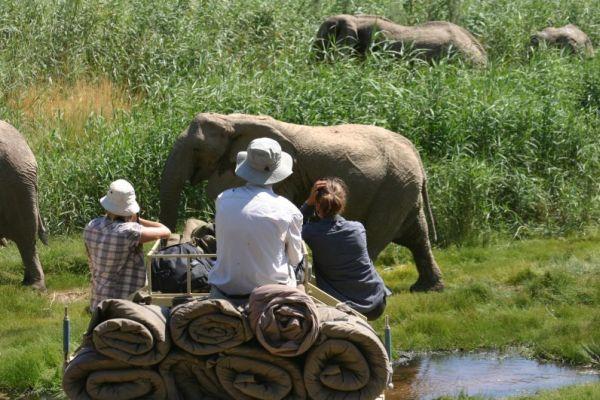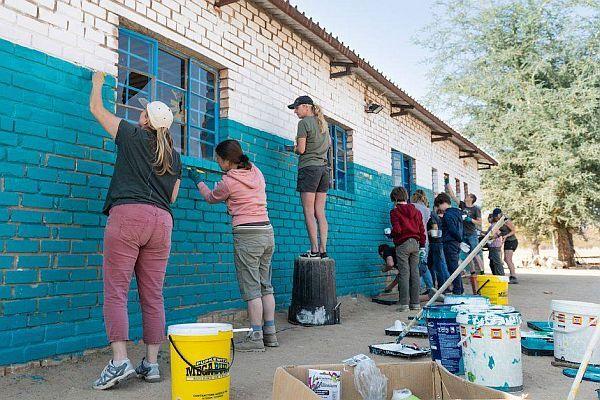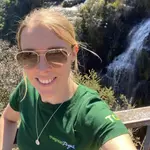

Desert Elephants in Namibia – Family Programme
Experience a wild camping adventure with your family, where you’ll to help to reduce human-animal conflict and leave a lasting legacy for the desert elephants of Namibia.
Speak To A Travel Expert
Activities



Itinerary
Please note itineraries are subject to change and what follows is simply a rough guideline.
Durations & Prices
Accommodation
Accommodation
This project offers a camping experience to rival all others, as you and your family truly immerse yourself in the Namibian wilderness. Sleeping under the stars in the desert, either on a large tarpaulin or in tents, is an awe-inspiring experience for any young adventurer! During your time spent at the school, you’ll set up a more permanent base, whereas on elephant patrols, you’ll set up a new camp each night wherever the elephants lead you! Whilst camping it is back to basics as there are no set showers, but the team will set up private long drop style toilets in each location.
Back at base camp, you will have more familiar comforts such as warm showers and toilet facilities. There is also a ‘treehouse’ platform to sleep on and two elephant drinking dams nearby, so you may be visited by thirsty elephants!
Meals & Beverages
Three meals a day are provided and cooked over the open campfire! Families typically follow a rota of ‘kitchen duty’, taking it in turns to cook for the group using the recipes provided, as well as waking first to make morning teas and coffees for the group. You can expect to enjoy healthy meals with examples such as roast chicken, spaghetti bolognese, lamb tagine and Thai curry, as well as some more local dishes. Most dietary requirements can also be catered for, though we kindly ask you let us know of any upon booking.
Project Details
Getting There
You will need to arrive into Swakopmund the day before your start date (Sunday) and book an additional night's accommodation. On your project start date (Monday), you will be picked up from your hotel at 11am and transferred to base camp which is approximately a 4-hour drive.
There are 2 options for arriving into Swakopmund; you can either fly into Walvis Bay Airport and take a short 20-minute transfer to your accommodation, or you can fly into Windhoek International Airport and take a 4-hour overland transfer. If you plan to fly into Windhoek Airport, please ensure your flight lands at 11:30am at the latest to ensure you have time to take the transfer to Swakopmund. Transfers from either airport are not included but can be arranged for you and paid for on arrival.
Visa Requirements
Citizens of most countries, including the UK, USA, Canada, Australia, Germany and most of those within the EU, will need to obtain a Visa On Arrival to enter Namibia.
This visa can be obtained online prior to travel and will permit a stay of up to 90 days. You will need at least 3 blank pages in your passport (which must be valid for a period of at least 6 months from your date of entry) for the immigration officials to use, and you must pay the visa application fee of N$1,600 (approximately $95).
If you are unsure of your individual visa requirements, we recommend speaking to your local Namibian embassy at least 2 months prior to travel.
Fitness & Skills
Whilst construction or maintenance tasks will be age-appropriate and conducted safely, this project does involve physical activities often in high temperatures. For this reason, we recommend a moderate level of fitness for all. There are no specific skills or experience required to take part, just a commitment and willingness to get involved! If you or a member of your family have any health concerns, please contact us and speak to a member of our team.
Vaccinations
There are no specific vaccinations required to join this project; therefore, we recommend consulting your GP/doctor or a travel clinic and following their advice on vaccinations for travel. You can also find helpful advice and information on the Travel Health Pro website.
Gallery
What's Included
- Accommodation
- Three meals per day
- Return transfers between Swakopmund and the project site
- Full orientation and support from the project managers
- A monetary contribution to the project
What's Not Included
- Flights
- Airport transfers
- Accommodation in Swakopmund























